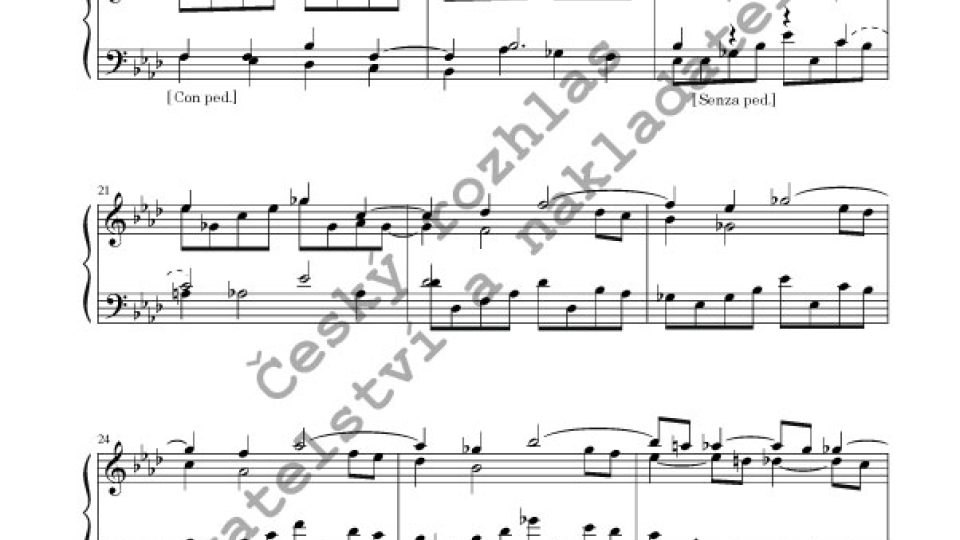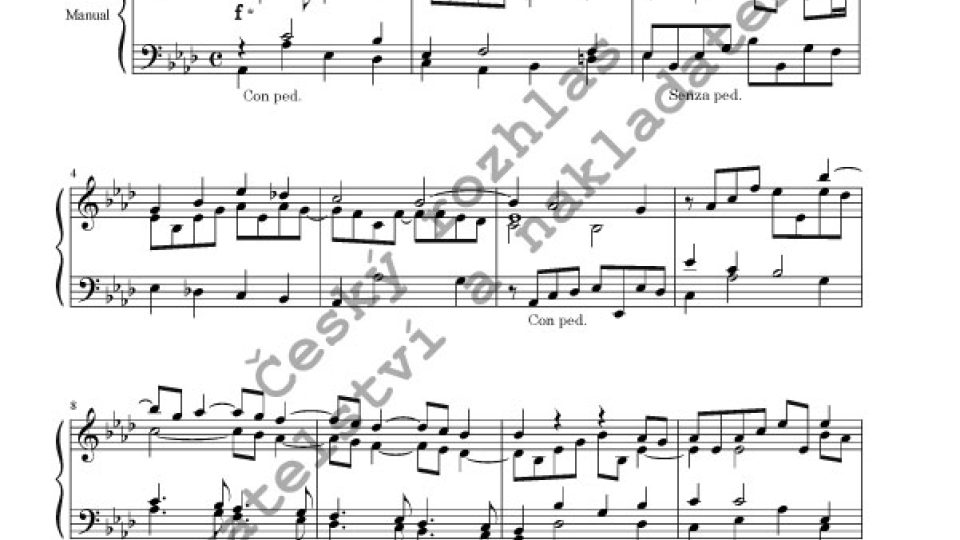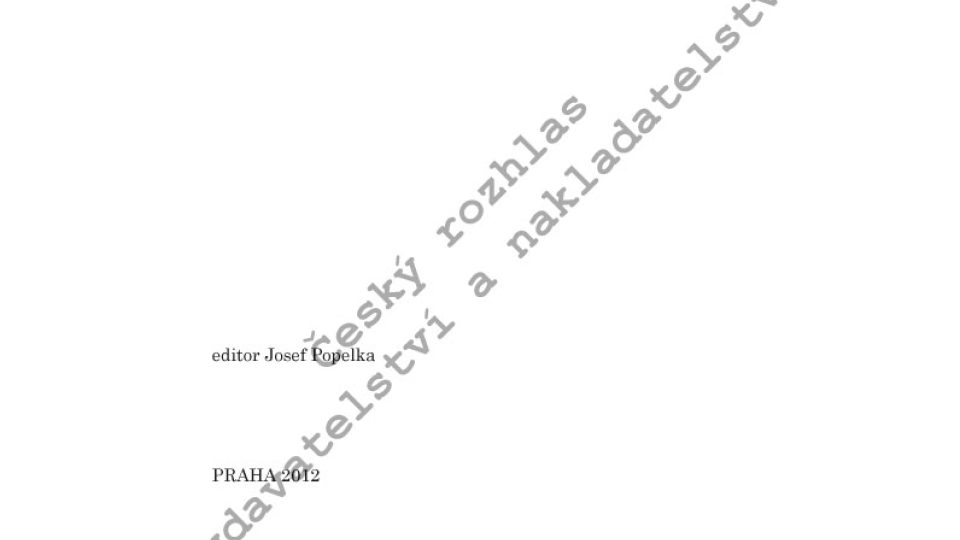Czech Organ Compositions II (ed. Josef Popelka)
Composers whose music appears in this album are all closely connected with the Prague organ school (or the Prague Conservatory, since these two institutions merged in 1889/90). The organ school was established in 1830 by the Czech Church Music Association; the official title was the Institute for Organists’ and Church Choirmasters’ Education (Ústav ku vzdělání varhaníků a ředitelů kůru), and the intention was to provide students with the skills and knowledge necessary for the purpose of church music practice.
Initially, the course lasted one year; in 1835 it was extended to a two-year study, and in 1871 the third year was added. While the Prague Conservatory (opened in 1811) offered only selected instrumental fields of study at first (and from 1815 also voice performance classes), the organ school led the students mainly to master the practical side of music theory (basso continuo; counterpoint; harmony; composition theory basics). In less than sixty years of its self-contained existence, the organ school became an important educational institution that surpassed substantially the original intentions of its founders, and brought up several generations of organists, choirmasters, and above all also composers, including such personalities as Antonín Dvořák, Josef Bohuslav Foerster, or Leoš Janáček.
Karel František Pitsch (1786, Bartošovice – 1858, Prague), the third headmaster of the organ school (between 1842 and 1858), was a significant Czech teacher and organist. He is most remembered for the publication of the Museum für Orgelspieler collection (three volumes came out in 1832 – 1834), which contained the selection of cca 160 organ pieces by various composers (some of the compositions, however, are mistakenly assigned to other than the real authors) for the purpose of both studies and the music practice. Apart from his organ music, he is also the author of several church compositions and songs.
Josef Leopold Zvonař (1824, Kublov – 1865, Prague), a music theoretician, teacher, and composer, assumed the position of deputy headmaster at the organ school from 1844. After the death of the headmaster K. F. Pitsch (in whose class Zvonař had finished the school in 1842), he expected to be assigned headmaster in Pitsch’s stead. However, he became merely a temporary headmaster for the period of less than six months, to be substituted by the new headmaster J. Krejčí, the winner of an open competition in November 1858. Between 1860 and 1863 he presided over the Žofín Academy, and in the remaining years of his life he gave singing lessons at the Czech Girls’ College. Apart from that, however, he was active in many other respects: besides his organizational activities he was also a significant music theoretician. His publications in the field of music pedagogy and music theory include mainly the Basics in Harmony and Vocal Studies for Music Teachers in General and for Elementary School Teachers in Particular (Základy harmonie a zpěvu s příslušným navedením pro učitele hudby vůbec a národních škol zvláště), Prague 1860), and he is also the author of a substantial number of entries in Rieger’s encyclopaedic dictionary. As for his compositional output, the focal point lies in his vocal pieces (songs, duos, and choruses).
Josef Krejčí (1821, Milostín – 1881, Prague), having finished the Prague teachers’ course (1838) and the organ school (1839), became organist in several churches. In 1858 he succeeded in the open competition for the headmaster’s position at the organ school, where he worked until 1866, in which year he was appointed head of the Prague Conservatory. He is often mentioned as a conservative pedagogue and composer, and it is in this context that his well-known graduate evaluation of Antonín Dvořák is understood. Dvořák (who graduated from the organ school in 1859) was referred to as a “splendid talent, yet of a rather practical sort”. Between 1848 and 1849 he was the editor of Caecilia, the first self-contained Czech music magazine.
Josef Förster (1833, Osenice – 1907, Prague), a composer, teacher, organist, and music journalist, the father of the well-known Josef Bohuslav Foerster, graduated from the organ school with distinction in 1852. After a short spell at the Vyšší Brod monastery, he entered the organ school as a teacher, but left it already in 1860 to manifest his disapproval with the appointment of Josef Krejčí as headmaster of the school. From 1866 he taught at the Prague Conservatory – first choral singing, and later, between 1879 and 1904 (when he retired), music theory. He was also a church organist in several Prague churches: most significantly at St. Adalbert’s, where he as a choirmaster performed extensive masses – and later on Renaissance polyphonic mass compositions following his shift towards the reformation movement ideals – all this with the active assistance of the members of the Provisional Theatre. From 1887 until his death he served as the choirmaster at the St. Vitus’ cathedral in Hradčany, Prague. He is the author of a textbook on harmony that was highly esteemed in his day, and also of an organ school published in 1862 in Prague under the title The Practical Manual for Playing the Organ (Praktický návod ku hře na varhany). His compositional output contains works for organ, piano, and harmonium, as well as vocal and vocal-instrumental compositions.
Josef Suk (1874, Křečovice – 1835, Benešov), a composer, teacher, and violinist, a member of the Czech Quartet, became a regular professor of the Prague Conservatory Master School in 1922. Between 1924 and 1935 he was elected and re-elected (4 times altogether) as its rector (the chief representative of the school, elected for a one-year period).




